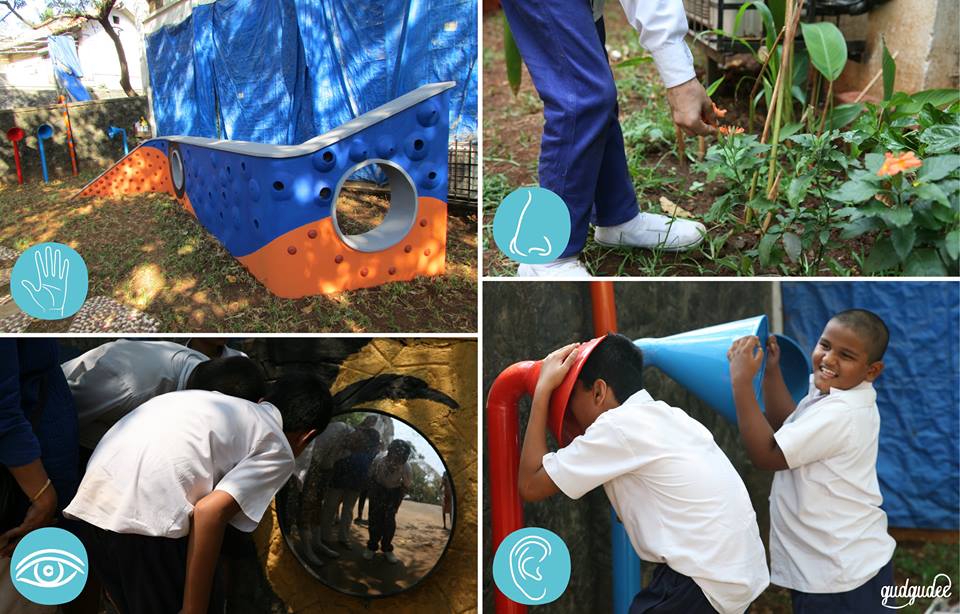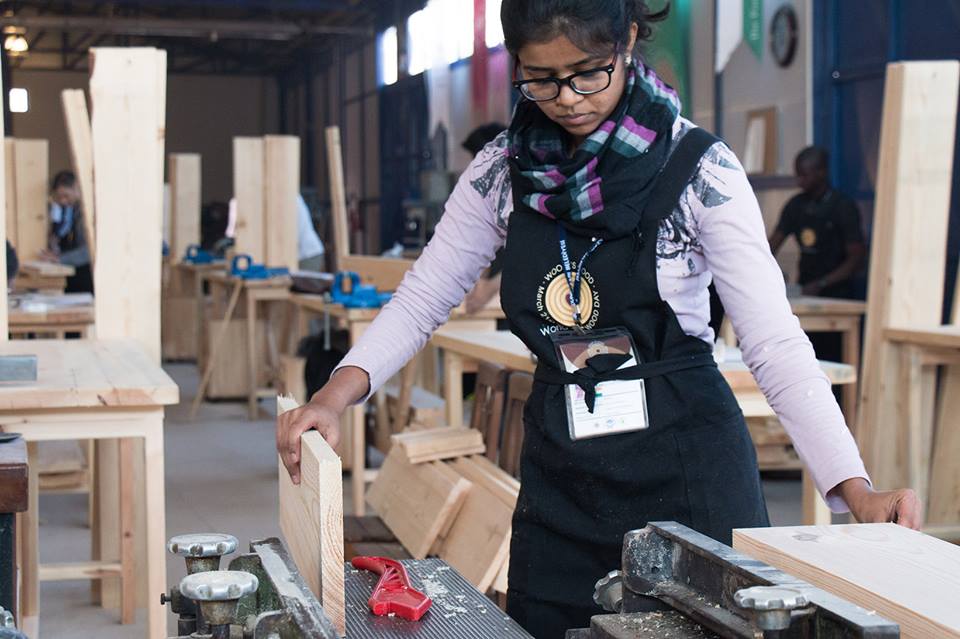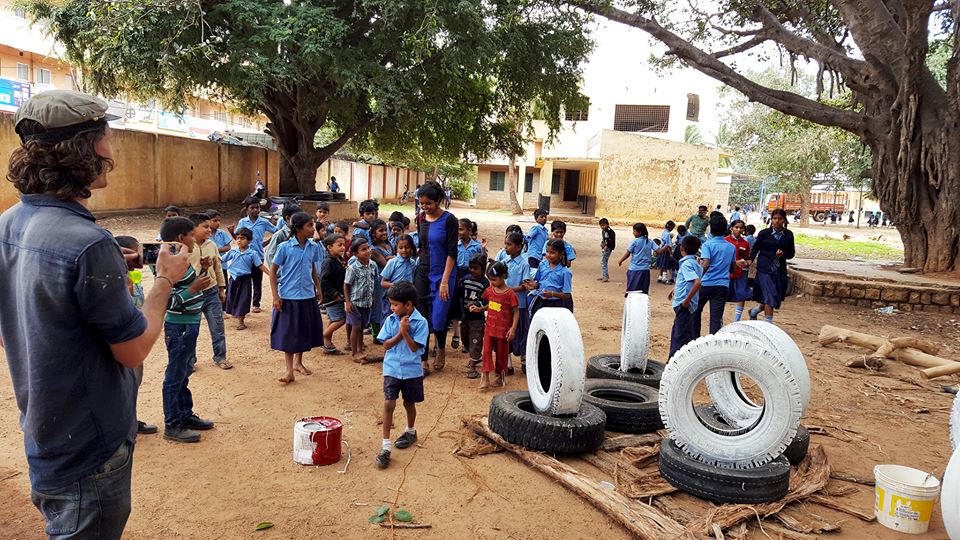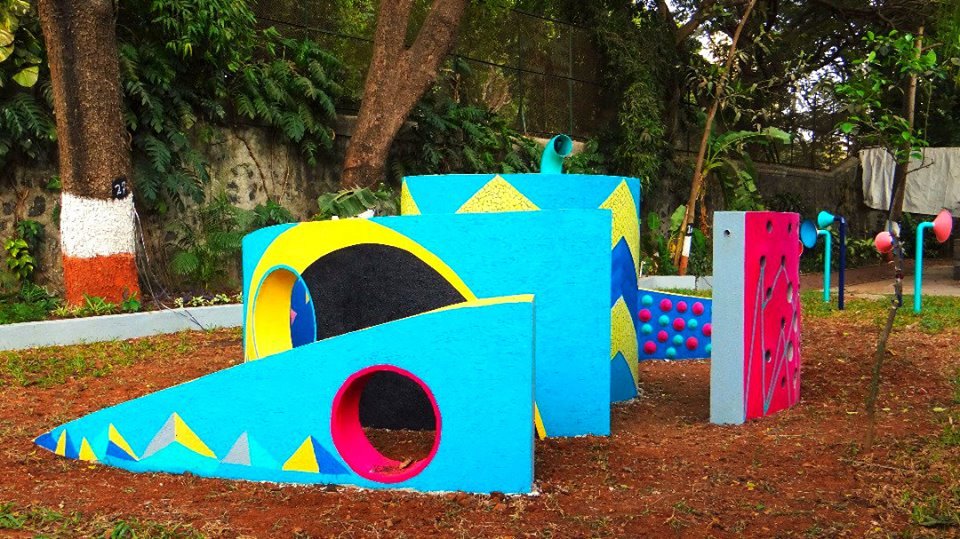All work and no play makes Jack a dull boy is an old adage, which holds true for every generation. Times are changing, and so has play! From running around the playground and the backyard creating your own games to following the one-world rule book of digital stay-at-home games, play has come a long way, but not necessarily in the right direction. While this issue prevails, there is another that is not discussed in the mainstream, which is how inclusive are our play areas and playgrounds? Are these built keeping in mind the kids with limitations? Not really, and that’s where Aditi Agrawal, a young female entrepreneur steps into the field, who is not only creating innovative play spaces, but those which are also inclusive by default.
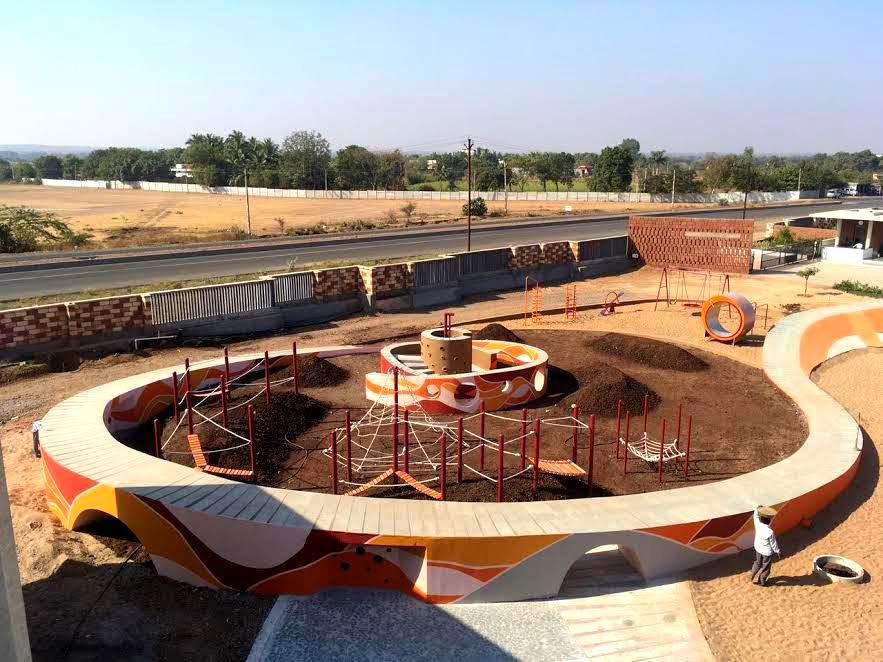
The Trigger That Made Waves In Inclusive Play
Aditi is an alumni of the National Institute of Design in Ahmedabad. In the last year, they had a course called Design for Special Needs. As a design problem, she was expected to find a special needs population, and design something for them. Aditi says- “My friend, Anjali Menon and I went to Blind People’s Association in Ahmedabad for observation. We observed that they had a lot of indoor and AV equipment, but the kids would never go outside to play. Parents had a social stigma and the regular play areas were not appropriate for them. So we thought let’s design something for them!”
“We started looking at interesting play equipment. But we had restrictions such as if we added seat belts it wouldn’t be attractive! Moreover, their siblings/friends wouldn’t go for these play options, and it would end up being exclusively for the differently abled, which was not our vision. So we decided to design something completely different that could be accessed by every kid, irrespective of their abilities or limitations. So that’s when our research about Play began!”
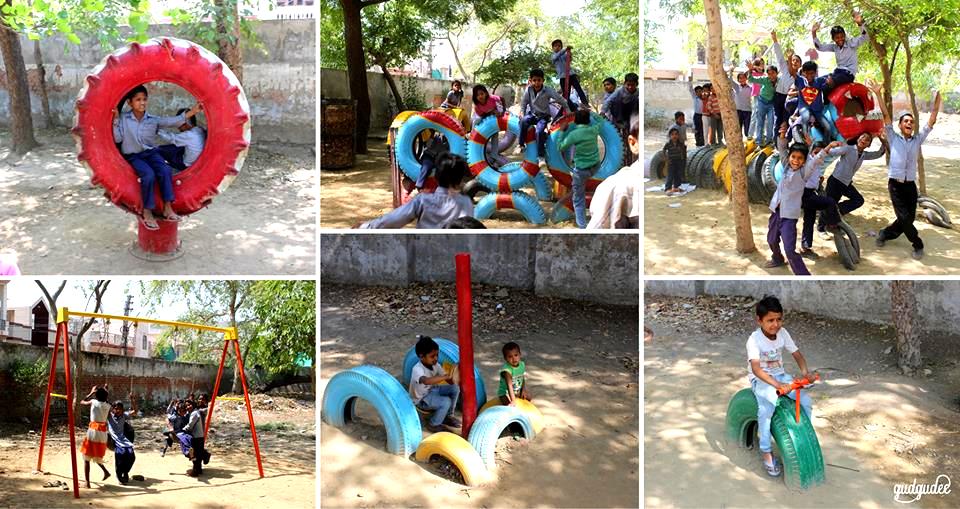
After intense research, Aditi and Anjali had the designs ready. These designs were meant to stay in their books and get them a good grade, but when they showed it to the authorities in the school, they really loved it! To an extent that the school authorities decided to raise funds and transform the paper designs into reality.
Aditi says- “Our next semester was completely spent in the playground! Thanks to the practical NID education system, they allowed us to take up this project though it would mean that we wouldn’t be able to attend the regular classes. They made an exception and passed us based on our work!”
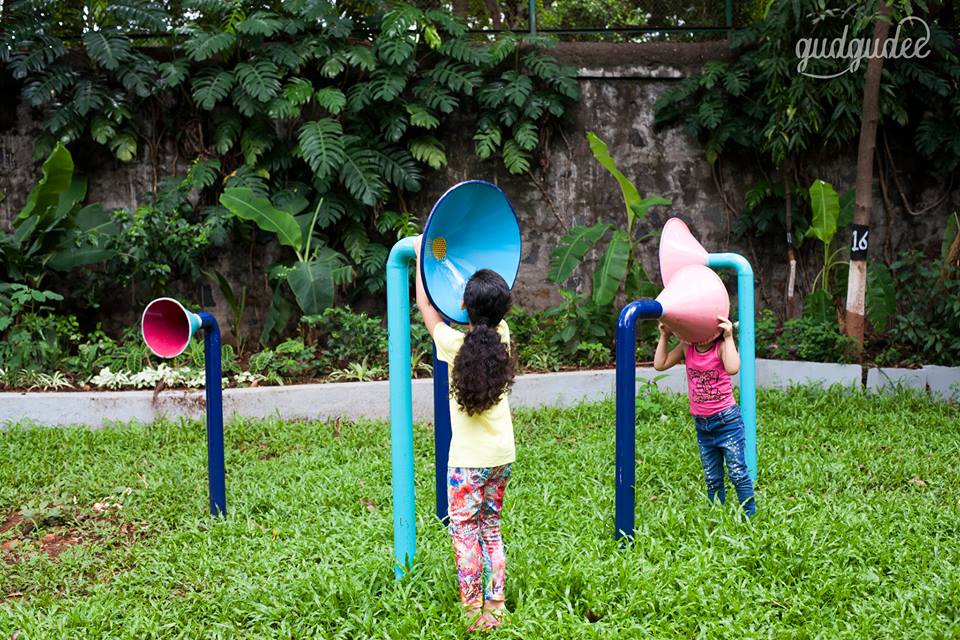
Co-Founding Gudgudee And Reinventing Play
Aditi graduated in Furniture Designing from NID. She didn’t sit for placement exams that would open doors to some good corporate job opportunities. She just did not feel the connect. Instead, she took up the Young India Fellowship. Post that, she worked at Bharat Floorings – a tile company where she was involved in making cement products.
Call it your heart’s calling or the universe conspiring, but eventually, the two of them happened to revisit their long-closed thread of designing inclusive playgrounds.
While officially setting up the design studio in the year 2014, they wanted to name it something fun and that which would remind people of their childhood. They sent out their list of shortlisted names to their friends, who voted for ‘Gudgudee’, which is Hindi for Tickle!
Why Should We Play?
Aditi shares- “Even though the children in our first project belonged to the blind association, there were kids who had other limitations also. So our aim was to design something that can encourage all these special kids to play, at the same time make it very inclusive, such that anybody can access the equipment and have a good time. It required a lot of observation. We sat through a lot of classes and visited other schools in and around Ahmedabad, especially the institutes that followed an alternate education model.”
“We met a lot of experts and also researched case studies of international projects for play spaces. We realised that the typical play ideas we see around us have gained popularity over time, but they are not necessarily the best play designs. So we started designing play spaces that included different sensory elements, which involved the kids’ sense of sound, smell, touch etc. The idea was that if one kid is lacking in one of the senses, then they can still explore the other aspects of it. This is something that forms the main basis of what we do today. We hold this funda strongly, while we keep evolving our designs while consulting other people.”
According to Aditi, “Playing is very very essential for everyone, and especially for kids. In fact more essential than studying, because playing helps in significant brain development. Even when kids start crawling or jumping, certain neurons in the brain get activated. If a child doesn’t crawl, then a certain aspect of the kid’s brain will not develop to its fullest potential. So playing is not just to pass time, but it’s nature’s way of letting a child develop their brain, which is an essential part of growing up.”
The Disappearing Playgrounds In Urban India
Aditi opines that for urban kids, the problem is that there is lack of space, majority of parents are over protective, and of course, the advent of the digital age. Digital games are excellent in some ways; they help you in areas like strengthening your problem solving abilities, quick thinking etc. But they don’t help you develop a lot of other aspects of your brain because it doesn’t engage all your senses. You can’t feel it, smell it, or touch it, and the senses that are not engaged will remain under developed. It’s important to give more exposure to all of this as much as possible.
“Playgrounds with special equipment is not really necessary, but because we now have limited access to open spaces, we have to introduce these interest points to encourage the child. Rural kids don’t need this so much yet. For them nature and their surroundings become their playground. Playground becomes an important space where kids are free to do whatever they want. That’s where communication between the kids is formed on their own, and it becomes more natural. Inclusion happens much faster in a playground than a classroom!”, says Aditi.
Inclusive Playground Is For Everyone
Aditi says that for other people to understand what inclusion means has been a big challenge. “Communication is a big thing that we are still in the process of realising. People still think that we design only for special kids and NGOs. The minute we use the word ‘Inclusive’, they assume it’s only for special kids! The problem is this concept hasn’t been implemented much in India, which is why people don’t accept it as easily.”
“The other challenges we face are age and gender related. We sometimes have to get into the construction part of the project, even though we are designers, because people tell us it cannot be done. They lack confidence when they see youngsters on the other end of the deal. We are usually meeting much older people and not everyone believes that you can get things done. Sometimes we have to work too much to prove to them first that this can be done. There have also been instances where we were underpaid because we were women. If we were guys, we would have been easily paid around triple the amount we received!”
Take Away – Habits That Help!
When we asked Aditi if she had any tips for people who want to become a designer, this is what she had to say – “Creativity is the most important quality to have for being a successful designer more than the skills. The skills can be got. When you have the desire, you start acquiring skills automatically.”
“There is one habit that I have cultivated over time, that is whenever I go to a restaurant, I have to see the furniture, how the table is designed, how comfortable the chair is to sit on etc. It comes naturally now!”
KnowYourStar.com (KYS) interviewed Aditi Agrawal as part of India Inclusion Summit(IIS). IIS is a platform that brings awareness and drives the inclusion of specially-abled people at corporates, schools, policymakers and NGOs. Yes, KYS is the official blogging partner for IIS, and backs the event whole-heartedly so that we can build a more Inclusive India.
Liked reading this? Then you might also like to read Shaswat Jena – The Gamer Who Found His Purpose In Inclusive Technology
If there’s any story that needs to be told, we will tell it. Write to us at contact@knowyourstar.com with your story lead, or contact us on Facebook or Twitter.
